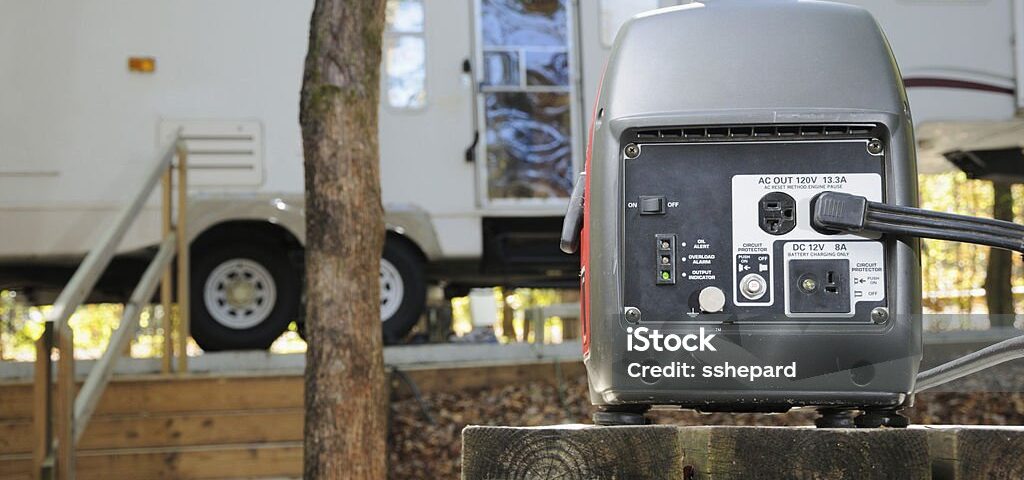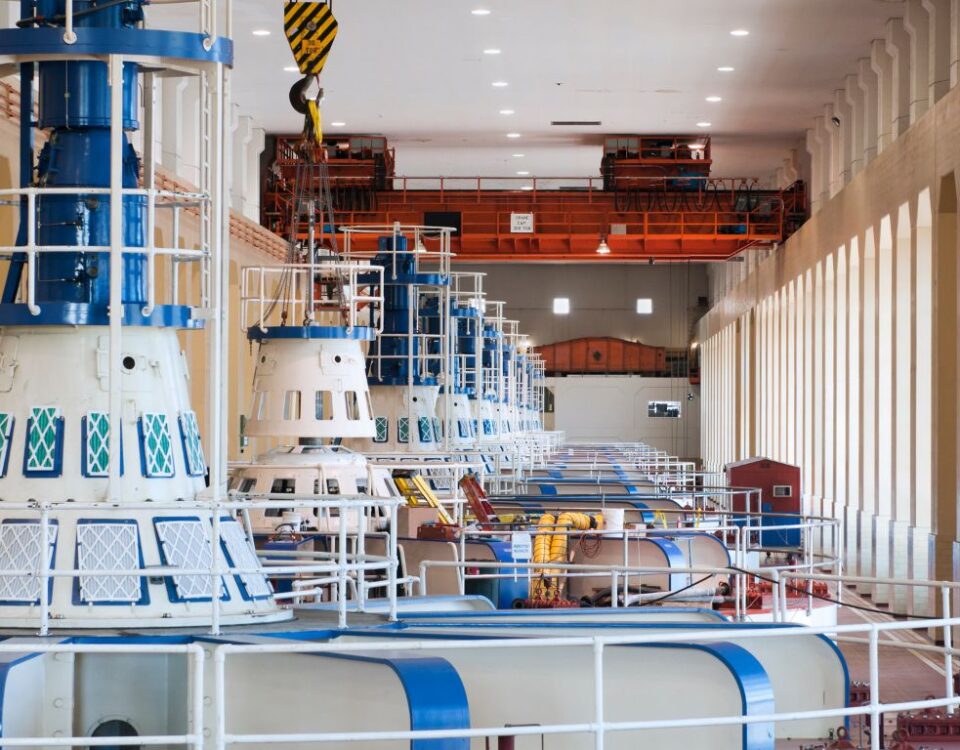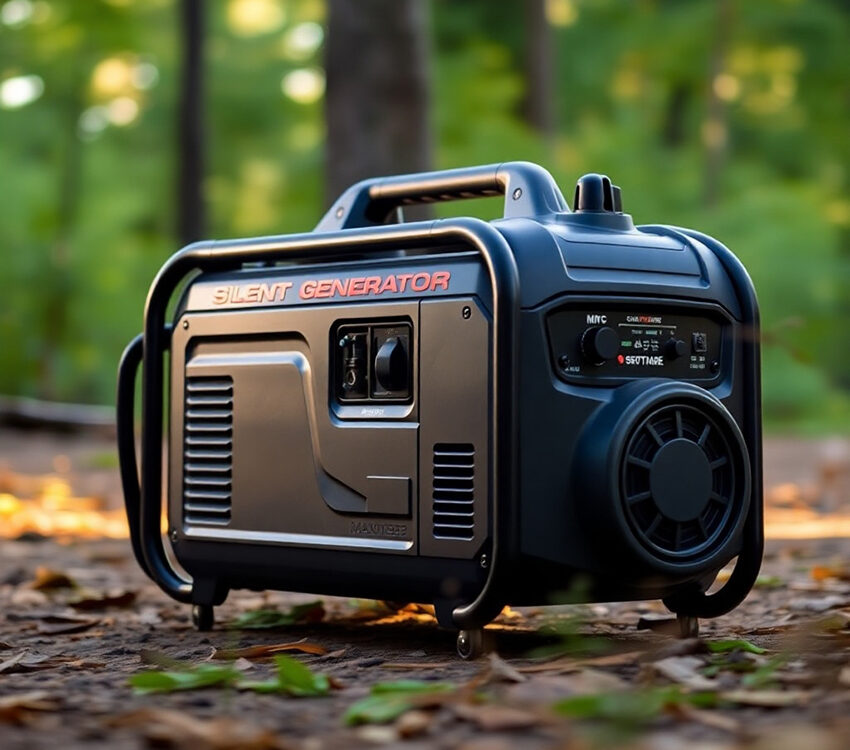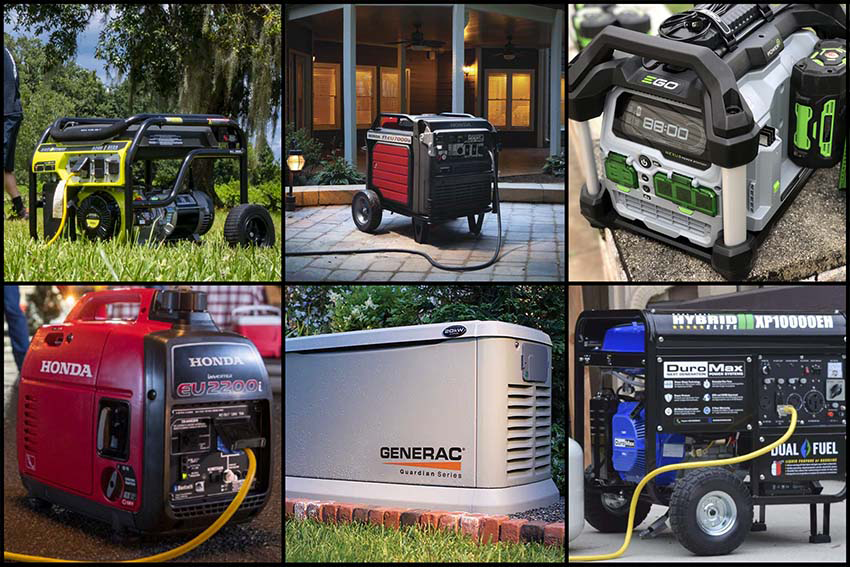
Close up of portable gasoline generator providing power for fifth wheel rv trailer in campground
What is an RV Generator?
An RV (Recreational Vehicle) generator is a device that generates electrical power for use in an RV. It is an essential component for travelers and campers, providing the convenience and comfort of electrical power in remote locations where connecting to a power grid is impossible.
How Does an RV Generator Work?
RV Generators operate much like any standard generator. They convert mechanical energy into electrical energy, typically using gasoline, diesel, or propane as a fuel source. The internal combustion engine within the generator drives an alternator, which produces alternating current (AC) electricity. The generated electrical output is harnessed to energize a range of appliances and gadgets inside the RV.
Types of RV Generators
Onboard Generators: These are built into the RV and are directly connected to the RV’s fuel system. They are convenient as they can be started from inside the RV and are generally quieter and more fuel-efficient.
Portable Generators: These are External Generators that are not built into the RV. They offer flexibility in placement and can be used in various settings, not just RVs. They tend to be less expensive but require manual setup and connection each time they are used.
RV Generator Load Calculation
To calculate the power needs for an RV generator, add up the wattage of all appliances and devices you plan to use simultaneously. This total will give you an idea of the minimum power output your generator should have. Common RV appliances and their average wattages include:
- Air Conditioner: 1,500 – 2,000 Watts
- Refrigerator: 400 – 1,000 Watts
- Microwave: 600 – 1,200 Watts
- TV: 100 – 300 Watts
- Laptop: 50 – 100 Watts
Considerations When Choosing an RV Generator
Power Output: RV generators range from 2,000 to 12,500 watts. The size needed depends on your RV’s power requirements.
Fuel Type: Gasoline, diesel, or propane are the typical fuel choices, each with its own advantages and disadvantages.
Noise Level: Consider the decibel level of the generator, especially if you plan to camp in noise-sensitive areas.
Portability: Decide whether a built-in or Portable Generator better suits your lifestyle and RV setup.
Fuel Efficiency: This affects how often you need to refuel and the overall operating cost.
Maintenance Requirements: Regular maintenance is essential for the longevity and efficiency of the generator.
Safety and Maintenance of RV Generators
- Regularly check and change oil and filters.
- Ensure the generator is properly ventilated to avoid carbon monoxide build-up.
- Consistently examine your generator’s fuel conduits and junctions to ensure there are no signs of leakage.
- Avoid overloading the generator beyond its capacity.
Conclusion
RV generators are a vital part of the RV experience, offering freedom and convenience to travelers. Understanding how they work, how to calculate the load, and the differences between types of generators will help you choose the best option for your RV and ensure a comfortable journey





